Search Articles
Browse Content (p. 20)

Article
Twelve Famous Native American Women
Native American women are traditionally held in high regard among the diverse nations, whether a given people are matrilineal or patrilineal. Traditionally, women were not only responsible for raising children and caring for the home but...
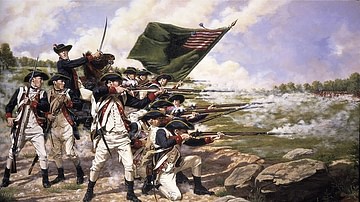
Article
Weapons in the American Revolution
The American Revolutionary War (1775-1783) was a long and bitter conflict fought between Great Britain and its thirteen North American colonies over the Americans' liberties and, eventually, for the independence of the United States. The...

Article
How the World Was Made: A Cherokee Creation Story
How the World Was Made is a creation story of the Cherokee nation, which, like many such tales of the Native peoples of North America, begins with a world covered by water from which dry land is formed and natural order created by beings...

Article
The Schweinfurt-Regensburg Raids - The US Bombing of Germany's Ball-Bearing Factories
The Schweinfurt-Regensburg raids in Germany were a series of attacks by B-17 Flying Fortress and B-24 Liberator bombers of the United States Air Force in August and October 1943 during the Second World War (1939-45). Schweinfurt had several...

Article
The Bombing of Dresden in 1945
The bomber raid on Dresden was a controversial and highly destructive combined operation by Royal Air Force Lancaster bombers and United States Air Force B-17 Flying Fortress bombers on 13, 14, and 15 February and 2 March 1945. The raid was...
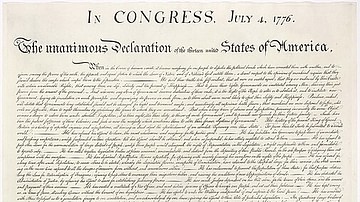
Article
Declaration of Independence
The Declaration of Independence is the foundational document of the United States of America. Written primarily by Thomas Jefferson, it explains why the Thirteen Colonies decided to separate from Great Britain during the American Revolution...
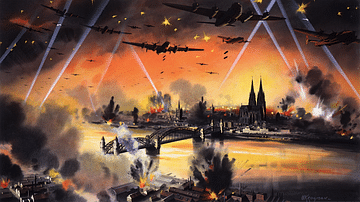
Article
The Thousand-bomber Raid on Cologne in 1942
Cologne (Köln) was the first German city to experience a "1,000-bomber raid" by the Royal Air Force during the Second World War (1939-45). The attack took place on the night of 30 May 1942 and was planned as a demonstration of the destruction...
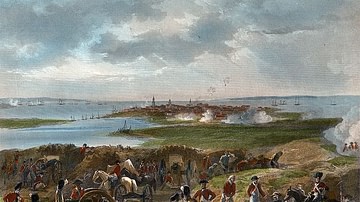
Article
Siege of Charleston
The Siege of Charleston (29 March to 12 May 1780) was a major military operation during the American Revolutionary War (1775-1783). Hoping to establish a foothold in the American South, British commander-in-chief Sir Henry Clinton led an...
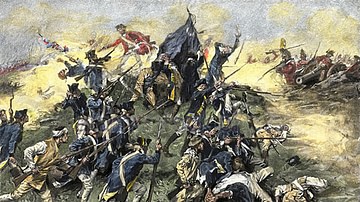
Article
Siege of Savannah
The Siege of Savannah (16 September to 20 October 1779) was a significant engagement in the American Revolutionary War (1775-1783). Hoping to retake Savannah, Georgia, which had fallen to the British the previous year, a Franco-American force...

Article
The Causes of WWII
The origins of the Second World War (1939-45) may be traced back to the harsh peace settlement of the First World War (1914-18) and the economic crisis of the 1930s, while more immediate causes were the aggressive invasions of their neighbours...